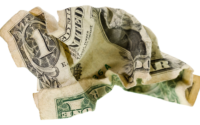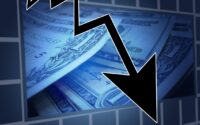Biden is “powerless” over inflation, blames Putin, COVID and GOP
President Biden is blaming three culprits when it comes to controlling inflation: Vladimir Putin, the pandemic and congressional Republicans. The problem is: He doesn’t control any of them.
Why it matters: By conceding he’s mostly powerless to meaningfully reduce inflation, Biden is bracing the country for higher prices. He’s also trying to make a case for the Democratic Party — and the remainder of his term — in this fall’s pivotal midterm elections.
- Working down a logic train in his inflation speech Tuesday, the president wanted to convince voters about who’s to blame for soaring prices — whether it’s national gasoline at an all-time high of $4.37/gallon or food prices soaring with each checkout.
- “It is a lot better that he is de facto admitting this than overpromising and underdelivering about a low inflation rate by Election Day,” said Jason Furman, a Harvard economist and chair of the Council of Economic Advisers under President Obama.
- “The president is largely powerless to bring down inflation.”
Driving the news: During his remarks, Biden plainly acknowledged “some of the roots of the inflation are outside of our control.”
He spoke a day before the release of the April Consumer Price Index, in which economists expect an 8.1% inflation rate.
- As for direct causes, Biden cited Putin’s invasion of Ukraine and supply-chain snarls caused by the pandemic as the “two major contributors to inflation.”
- He also singled out Republicans for their tax plans, saving particular scorn for Sen. Rick Scott (R-Fla.). The president also blamed “ultra-MAGA Republicans” for blocking his Build Back Better plan, which he claims would lower prices.
- Republicans — as well as Sen. Joe Manchin (D-W.Va.), who effectively killed Biden’s ambitious spending agenda in December — believe the president’s proposals will increase inflation.
Between the lines: Biden was careful not to directly blame the Federal Reserve for the current 8.5% annual inflation rate, but he reminded voters the Fed “plays a primary role in fighting inflation in our country.”
- He also was explicit he would “never interfere with the Fed’s judgments.”
- Biden’s approach is in contrast to President Trump, who publicly tried to pressure Federal Reserve Chair Jerome Powell into keeping interest rates low while threatening to fire him.
The big picture: Congressional Republicans and prominent Democratic economists, like Harvard’s Larry Summers, have insisted that pandemic spending has contributed to inflation.
They cite the $1.9 trillion coronavirus relief bill Biden signed into law last March.
- Economic experts have also faulted the Fed, which announced its biggest rate hike in history last week, for keeping interest rates too low for too long.
- “The president was right to call out Ukraine and COVID as factors in our inflation,” Steve Rattner, a former economic adviser to President Obama, told Axios.
- “But he was wrong to omit the important contribution to the problem from excessive fiscal and monetary stimulus.”
- “And he overstated the extent to which his current actions and proposals are likely to ameliorate the problem.”
Go deeper: Biden, when directly asked if he bore any responsibility for inflation said, “I think our policies help, not hurt.”
- He also cited the FY21 federal deficit, which was $2.8 trillion, as helping to reduce inflation.
- It was roughly $350 billion less than Trump’s record $3.1 trillion deficit, in 2020.
The intrigue: Biden hinted his administration is considering reducing some of the China tariffs imposed by Trump — a source of debate inside the administration.
- “No decision has been made on it,” he told reporters.
[ad_2]
Source link


